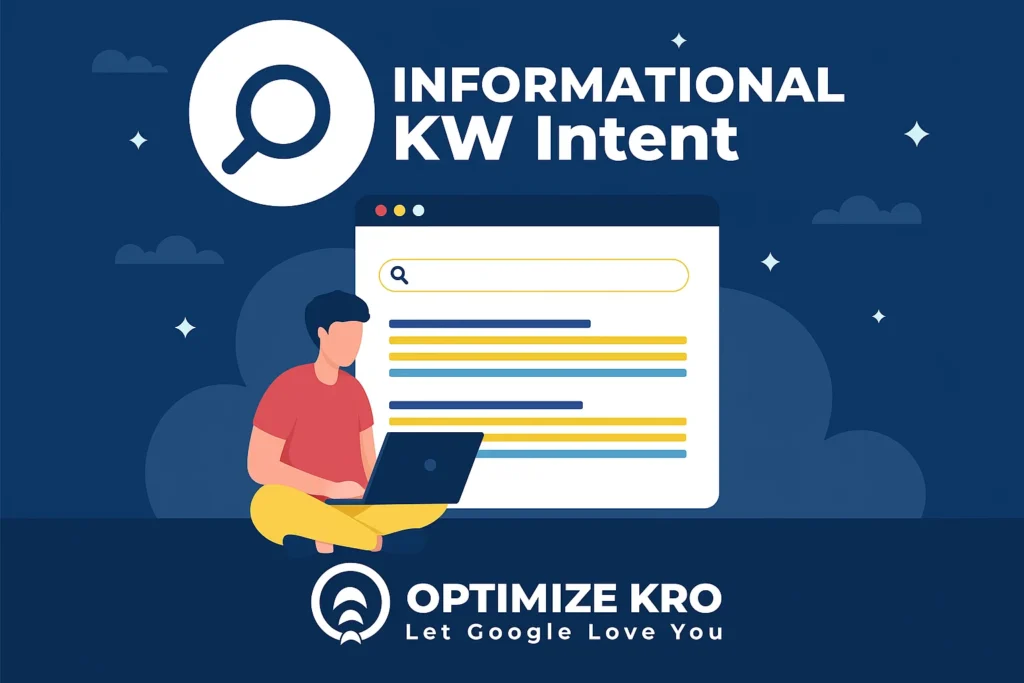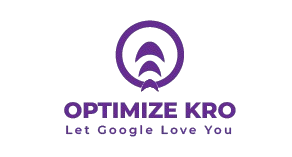In the ever-evolving world of SEO (Search Engine Optimization), understanding search intent is crucial for creating content that not only ranks well but also serves the needs of your audience. Among the various types of search intent, informational intent plays a vital role in driving organic traffic and enhancing user engagement. But what exactly are informational intent keywords, and how can you leverage them for SEO success?
This article will explore informational intent keywords in depth, explaining what they are, why they matter, and how you can use them to improve your SEO strategy. We will also look at how to optimize your content using NLP (Natural Language Processing) and answer frequently asked questions on the topic.
- What Are Informational Intent Keywords?
- Why Do Informational Intent Keywords Matter?
- Types of Search Intent
- NLP Optimization for Informational Content
- Optimizing Your Content for Informational Intent Keywords
- Table: Best Practices for Optimizing Informational Content
- What Our Clients Say
- FAQs on Informational Intent Keywords

What Are Informational Intent Keywords?
Informational intent keywords are terms that searchers use when they are looking for information, answers, or solutions. Unlike transactional or navigational search queries, informational queries don’t have the intent to purchase or navigate to a specific website. Instead, users are simply seeking knowledge or clarification on a topic.
For example:
- “How to bake a cake”
- “What is the capital of France?”
- “Tips for improving productivity”
These are typical informational search queries. The users behind these queries are not ready to buy anything; they simply want to know something, learn a new skill, or understand a particular concept.
Why Do Informational Intent Keywords Matter?
Informational intent keywords are crucial for several reasons:
- Increased Traffic: Informational queries often represent a large portion of search traffic. Targeting these queries can drive significant organic traffic to your website.
- Building Authority: By providing comprehensive, well-researched answers to common questions, you can position your site as an authoritative source on the subject matter.
- Better User Engagement: If you answer users’ questions effectively, they are more likely to stay longer on your page, explore other content, and share your article, boosting engagement.
- Opportunities for Featured Snippets: Google’s Featured Snippets often extract answers from content targeting informational queries, offering your site prominent placement on the search results page.
Types of Search Intent
Before diving deeper into informational intent, it’s essential to understand the broader concept of search intent. Broadly, search intent can be divided into three primary types:
| Type of Intent | Description | Example |
|---|---|---|
| Informational Intent | The user seeks information or answers to a question. No immediate intent to buy or make a transaction. | “How to learn SEO?” |
| Navigational Intent | The user is looking for a specific website or page. | “Facebook login” |
| Transactional Intent | The user is ready to make a purchase or complete a transaction. | “Buy iPhone 14 online” |
Informational queries, as shown in the table, are a part of the informational intent category, and they are the most common type of query searched by users on the internet.
NLP Optimization for Informational Content
To rank well for informational intent keywords, you need to optimize your content effectively. Natural Language Processing (NLP) plays a significant role in how search engines understand and rank your content. Here’s how you can leverage NLP to optimize your content:
1. Understand Semantic Search
NLP helps search engines to interpret the meaning behind search queries, rather than just matching keywords. With the help of NLP, search engines can understand variations in phrasing, synonyms, and related concepts.
For example:
- A query like “How to get better at SEO?” can be semantically matched to “SEO tips for beginners” or “Learning SEO effectively,” even though the words are different.
2. Focus on Context
It’s no longer just about using exact match keywords. NLP allows search engines to focus on the context surrounding a keyword, helping them to determine the relevance of your content.
For example, if you’re targeting the keyword “best SEO tools,” it’s important that your content also includes related context such as “SEO software reviews,” “SEO tools for beginners,” and “most effective SEO strategies.”
3. Write Conversational Content
Search engines are now better at understanding conversational language. By writing in a more natural, human-like tone, you can improve your chances of ranking for informational intent keywords. This aligns with voice search, where users tend to ask questions in a more conversational style.
4. Use Structured Data
Incorporating structured data (Schema markup) can help search engines understand the content of your page more clearly. For example, if your content answers a frequently asked question (FAQ), you can mark it up using FAQ schema to increase the chances of appearing in Google’s rich snippets.
Optimizing Your Content for Informational Intent Keywords
To maximize the effectiveness of your content for informational intent queries, follow these steps:
1. Keyword Research
Start by researching informational keywords that are relevant to your niche. You can use tools like Google Keyword Planner, Ahrefs, SEMrush, or Ubersuggest to identify popular informational queries related to your industry.
2. Create Comprehensive, High-Quality Content
Make sure that your content thoroughly answers the user’s query. Provide value by covering the topic in-depth, and include relevant examples, statistics, and images. The more comprehensive and helpful your content is, the higher the chances of ranking well.
3. Answer Directly in the Beginning
If your goal is to appear in the Featured Snippets, make sure to answer the query directly at the beginning of your content. Use bullet points, numbered lists, or concise paragraphs to quickly provide the information the user is seeking.
4. Focus on User Experience
In addition to content, user experience (UX) plays an important role in rankings. Ensure your website is mobile-friendly, fast, and easy to navigate. The longer a user stays on your page, the more likely it is that Google will consider your content relevant.
5. Utilize Multimedia
Adding multimedia like images, videos, infographics, and diagrams helps break up your content and makes it more engaging. Additionally, it helps answer a question in multiple formats, catering to users’ diverse preferences.
6. Internal Linking
Link to other relevant articles on your website. This not only helps with SEO but also guides users to more content they may find helpful.
Table: Best Practices for Optimizing Informational Content
| Strategy | Description |
|---|---|
| In-depth Content Creation | Provide comprehensive, high-quality information that thoroughly answers users’ questions. |
| Answer Immediately | Provide direct answers to the query at the beginning of the article for better chances of Featured Snippets. |
| Use Structured Data | Implement Schema markup to improve visibility and encourage rich snippets or FAQs in the search results. |
| Use NLP Keywords & Synonyms | Focus on natural language and semantic variations of your target keywords to improve relevancy. |
| Improve User Experience (UX) | Make sure your site is mobile-optimized, loads quickly, and provides easy navigation. |
| Multimedia & Visuals | Incorporate videos, infographics, and images to enrich the user experience and help explain complex concepts. |
What Our Clients Say
Trusted by contractors and local businesses for proven Local SEO Services.
John M. – General Contractor
“These guys transformed my Google Maps ranking. More calls, more local leads, and better visibility!”
Sarah L. – Roofing Business
“Within 3 months, my business went from page 3 to the top 3 listings. Highly recommend their Local SEO service!”
David K. – Plumbing Services
“Affordable and effective SEO. My local service calls doubled in less than 90 days.”
FAQs on Informational Intent Keywords
1. What is an example of an informational intent search?
An example would be a search query like “how to create a website” or “what is machine learning?” The searcher is seeking information and does not intend to buy or navigate to a specific site.
2. How do I find informational intent keywords?
Use keyword research tools like Google Keyword Planner, Ahrefs, and SEMrush to find keywords with high search volume that are informational in nature. Look for questions, how-tos, and what-is type queries.
3. How can I optimize for informational intent keywords?
Focus on providing clear, concise, and comprehensive answers to the user’s query. Use NLP techniques by including related keywords and variations, and implement structured data where possible.
4. Can informational content rank for transactional queries?
It’s unlikely. Informational intent and transactional intent are two distinct categories. However, if your informational content provides enough value, it could indirectly guide users toward making a purchase decision.
5. Why does Google favor NLP in search results?
Google uses NLP to better understand the context of a query, not just the specific keywords. This helps provide users with more relevant and accurate search results, making the search experience more efficient.
Conclusion
Incorporating informational intent keywords into your SEO strategy is a powerful way to attract users who are seeking valuable, in-depth information. By focusing on high-quality content, leveraging NLP, and following best practices for optimization, you can improve your search rankings and meet the needs of your audience. Keep in mind that the primary goal is always to answer the user’s query as comprehensively and clearly as possible, and this approach will lead to sustained SEO success.

Gulfam Qamar is a seasoned Local SEO expert with a proven track record of helping businesses boost their online visibility and dominate local search results. With deep expertise in Google Business Profiles, on-page optimization, and local citation strategies, Gulfam helps brands connect with nearby customers and grow sustainably. When he’s not optimizing websites, he’s sharing actionable SEO tips and insights to empower small businesses in the digital space.

